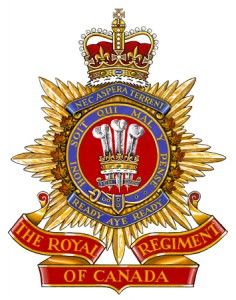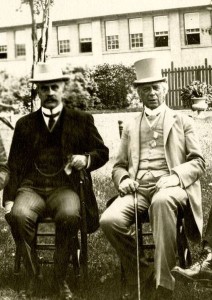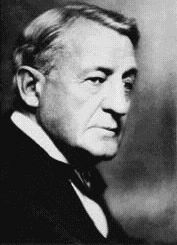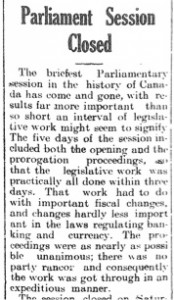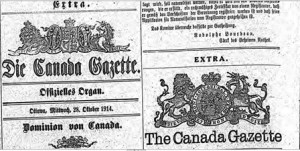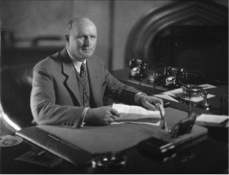On 5 August, it was announced that the Canadian Cabinet had called a special session of parliament to meet on Tuesday 18 August. The session was deemed necessary after Canada was officially informed that the Britain had declared war against Germany on 4 August 1914. Prime Minister Borden did not announce what types of proposals would be presented to the parliament, but it was evident that the parliament would need to pass legislation in regards to the war effort.
The Minster of Militia, Samuel Hughes, was given authorization by the Canadian government to carry out partial mobilization. Already the Royal Canadian Regiment, Canada’s permanent force, had been mobilized and sent to strategic ports for the coastal defense of Canada. Until the imperial government announced what they wanted Canada to do there would be no general mobilization. An order for the mobilization of at least 20,000 men was expected to come within the next few days. That order arrived on 6 August and Hughes immediately sent notices to the pre-existing military districts across Canada to begin recruitment.
(“House is Summoned,” Berlin Daily-Telegraph, 5 August 1914, Visual: http://upload.wikimedia.org/wikipedia/en/5/55/Royal_Regiment_of_Canada.jpg)
